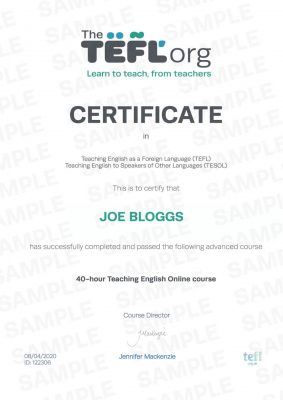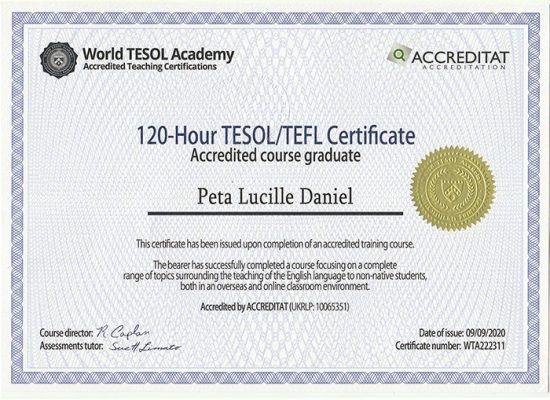- TEFL (Teaching English as a Foreign Language)
This is by far the most common acronym you’ll come across; that’s because TEFL refers to the industry, not a specific type of certificate. A good course provider, such as i-to-i, will be accredited by a body such as the ODLQC, and will train you to become a confident and effective TEFL teacher. TEFL qualifications are the most commonly held qualifications by teachers living and teaching overseas, due to the relatively low cost, ease and speed of getting qualified – paired with great quality training.
There are lots of options, ranging from short intensive weekend courses to an courses including as much as 300 hours of study. An intensive weekend TEFL course will give you around 20 hours of instruction. Online courses vary in length, but a typical 120 hour course is the minimum requirement for overseas employment.
Taking up to 3 months to complete, these online courses allow you to Whether you study online or in the classroom, each of these courses provide a solid introduction to TEFL and give you the skills and techniques to begin working straightaway. The weekend course has the added benefit of a practical element where you can teach the other trainees, and you’re even able to combine online training with a weekend session!

- TESOL (Teaching English to Speakers of Other Languages)
TESOL is another commonly-used acronym, particularly popular in North America, Canada and Australia. The good news is, despite this being a very distinct set of letters, there’s really no difference between TEFL and TESOL.
You get qualified in the same way (online or in the classroom), with similar flexibility, usually reasonable pricing and the same clout when it comes to teaching worldwide.

- CELTA (Certificate in English Language Teaching to Adults)
The Cambridge CELTA is a specific type of TEFL certificate. It is standardised and courses are run in centres all over the world. It is an incredibly intensive course, lasting four to five weeks, full-time (sometimes residential), and costs can run to the thousands. In addition, to enrol on a CELTA course you need to be at least 20 years old and have formal education qualifications (whereas to study for a TEFL qualification the minimum age is 16 and you just need a native-level ability to speak English).
CELTA courses certainly have their place in the world of teaching abroad, and they can be ideal for those who want to make a lifelong career of teaching abroad (or teach English to learners in English-speaking countries). However, unless you’re really planning some long-term serious teaching, it may be that you don’t need to make the time and financial commitment a CELTA course demands.

